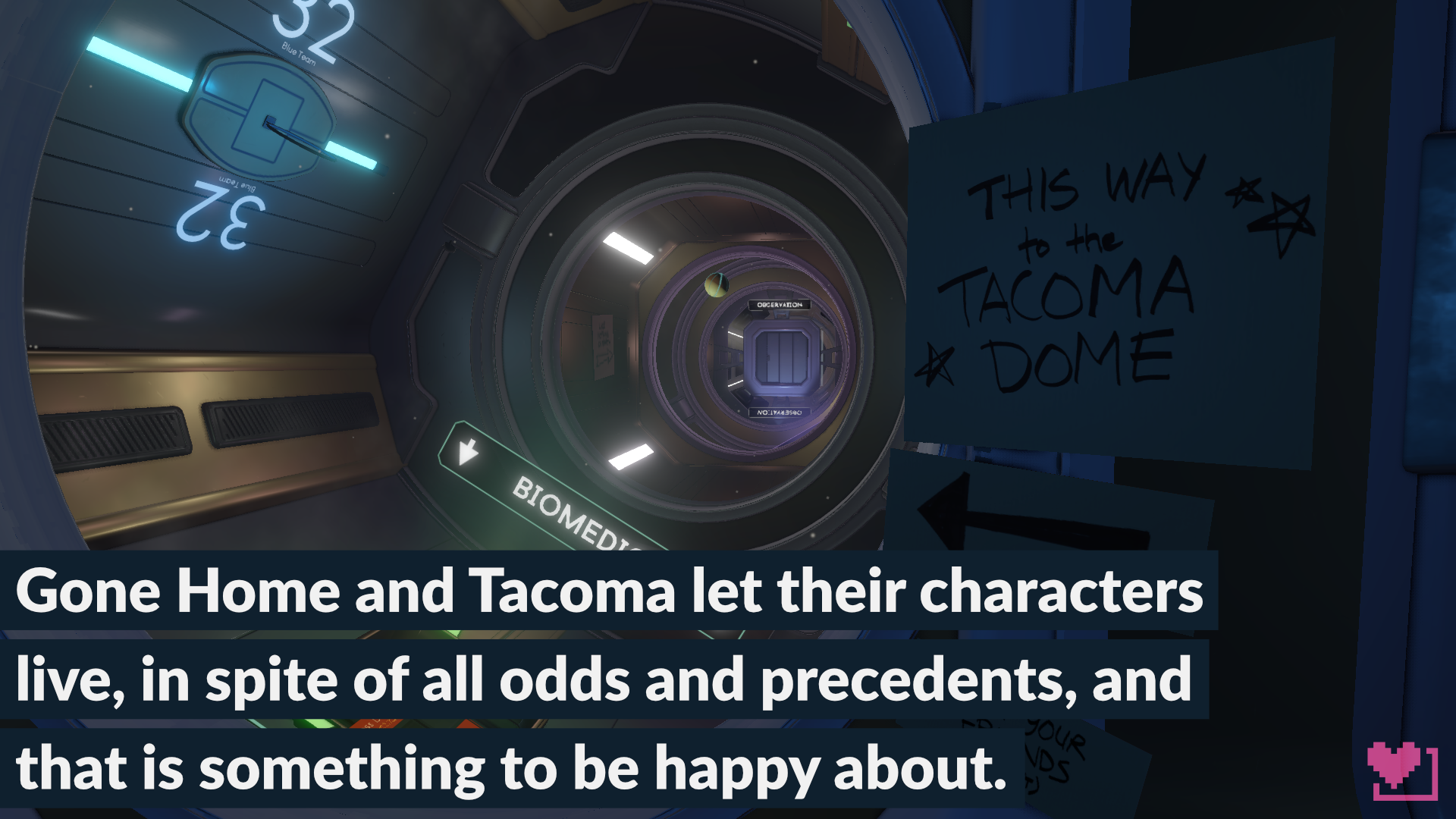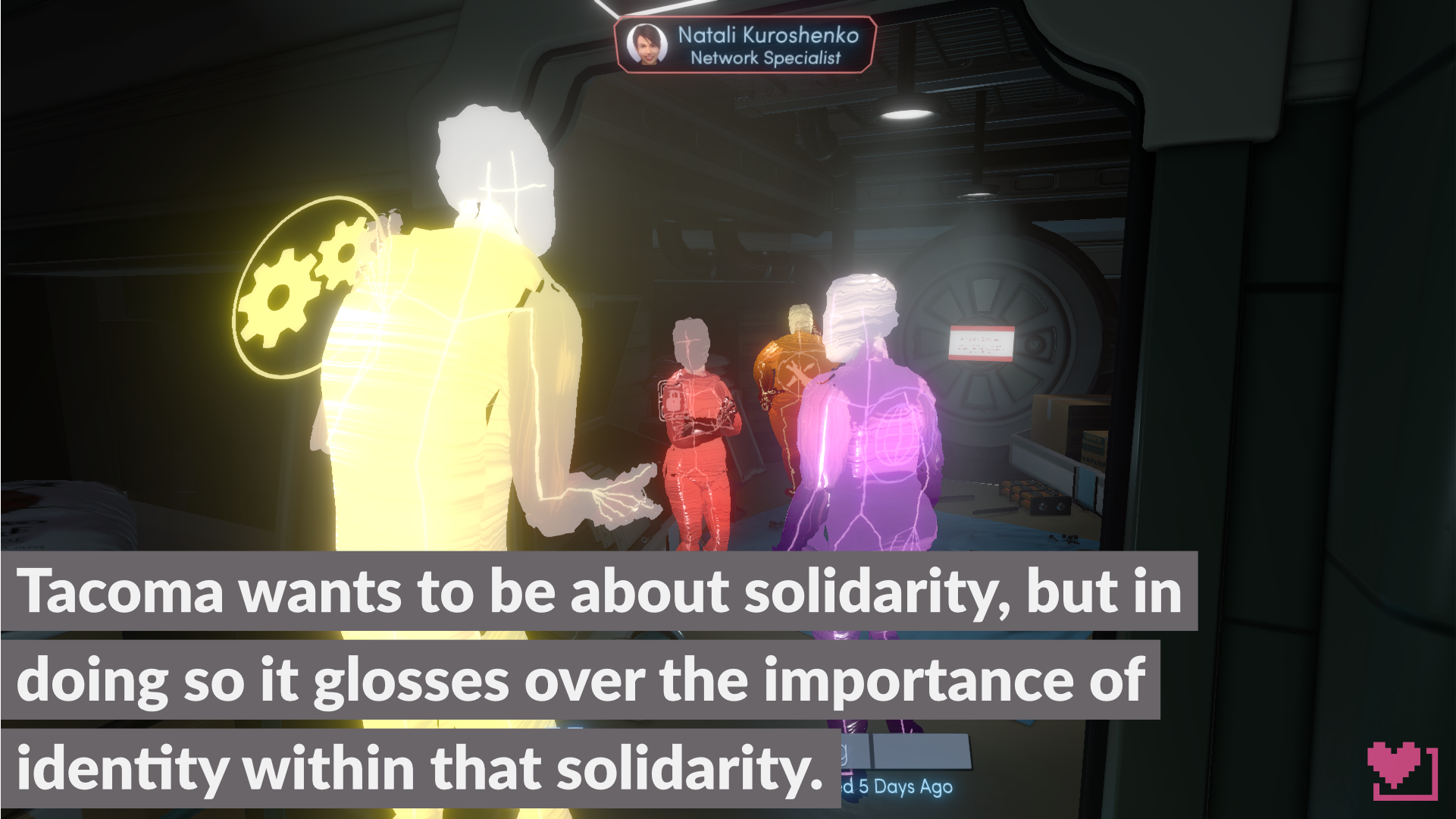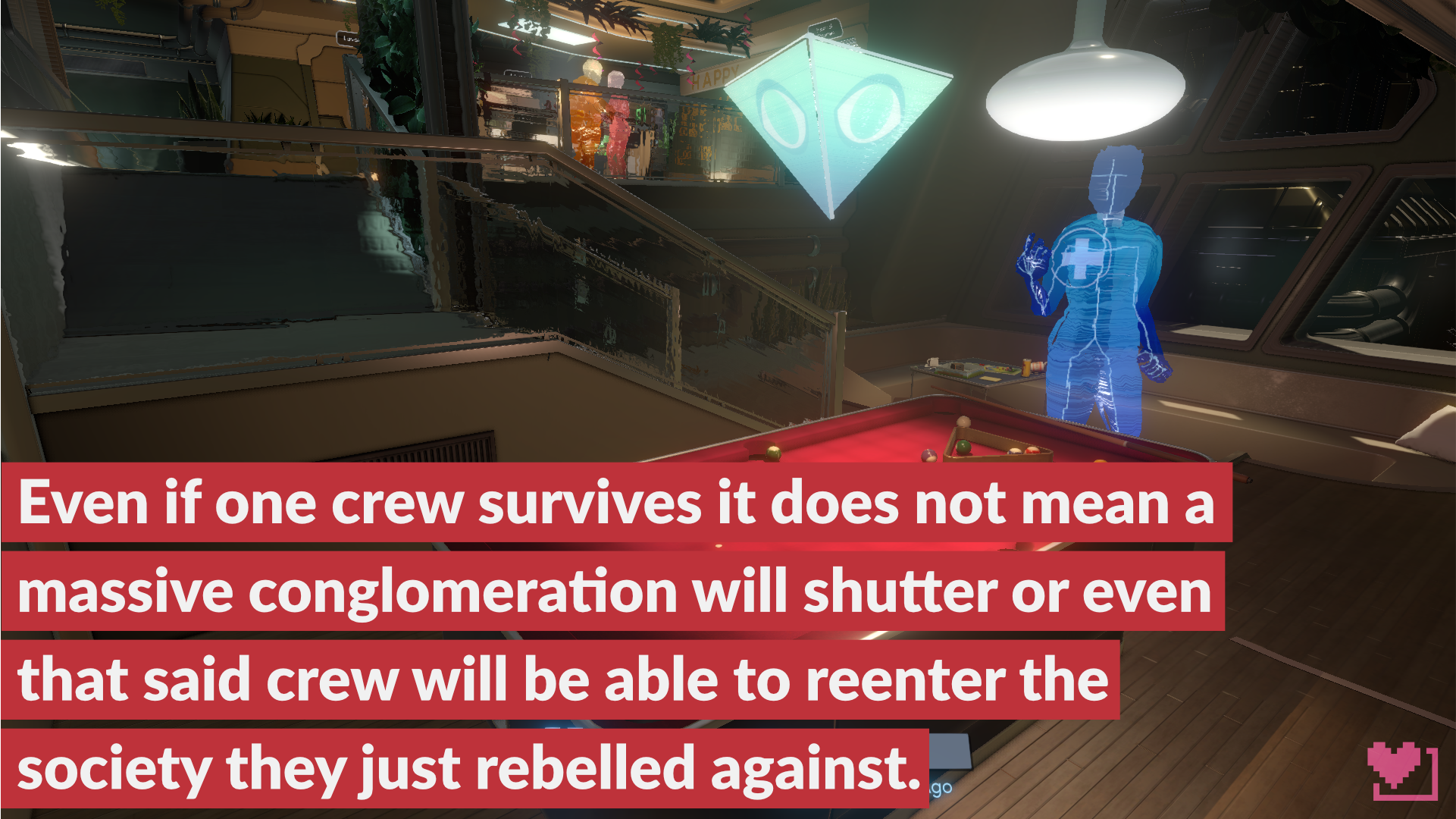Can Tacoma have a happy ending?
If the title was not obvious enough, the following will contain full spoilers for Fullbright’s Tacoma, as well as the film Sorry to Bother You.
Fullbright is one of gaming’s most optimistic game developers. With Gone Home, they took the all too familiar story of a queer teenager driven to suicide from lack of acceptance and turned it into an ode to reckless love. Tacoma similarly sets itself up as a futuristic warning to the human price of capitalism à la Alien but resolves by pronouncing the strength of worker solidarity and grassroots activism.
Gone Home and Tacoma let their characters live, in spite of all odds and precedents, and that is something to be happy about. We need more games that champion our collective humanity and the importance of relationships. But with Tacoma, it begins to feel like this optimism might be getting in the way of the message that actually needs to be heard. Unions and activists groups can change the world, it is not just a matter of working together that is needed for these systems to change. To borrow from father Marx, “there are no happy endings under capitalism.”
Tacoma is set in the 2080s aboard a space station of the same name. Global currencies have collapsed and been replaced by company loyalty points locked to whichever mega-corporation a worker is indentured to. Paralleling these changes are exponential advances in artificial intelligence which now threatens to render “obsolete” the few remaining human workers, if legislation is passed to remove the requirement of human oversight.
Tacoma goes all in on this theme of economic entrapment. As you rewind augmented reality recordings of the Tacoma’s crew, you witness tense conversations with separated families and couples who cannot guarantee they won’t be stationed apart. Crew members attempting to go back to school are told they cannot do so outside the company network, and the company’s demand for total control and knowledge goes as far as to record crew member’s showering or getting cozy with their crewmates. It is invasive and inescapable in a way that feels eerily familiar, with contemporary discussions of privacy questioning what constitutes digital consent to be monitored, and monoliths like Amazon being accused of forcing their workers to piss in buckets rather than stop production.
It is easy to see a station like the Tacoma existing not decades in the future, but years or even today if lawmakers would allow it. In their video essay on Tacoma, Errant Signal noted even the design of the space station itself reflected the company’s inability to see its workers as individuals, with cabins designed as “one-size fit all” with no expectation of married couples or different body types.
Tacoma readily reflects the dehumanizing results of nation-sized capitalist companies, but curiously, tensions between individuals have all but vanished. The crew of the Tacoma is laudably diverse, featuring a range of genders, sexual orientations, nationalities, body types, and religions. But as visible as these differences are, they don’t manifest themselves in the game’s themes of capitalist marginalization. Capitalism has historically hit marginalized groups the hardest so it is curious that in the future Tacoma imagines, true equality has actually been reached. And I’m torn about whether this is good or negligent.
It is important and necessary that we have games featuring a diverse cast of characters where those differences do not need to define them. It is exhausting even as a white, able-bodied, cis man for there to be no place of peace where marginalized groups can exist and experience stories that are not only about oppression. But I am not sure Tacoma is the right game for these stories.
Though it is believable that some tensions surrounding identity politics might disappear in the future, it seems unlikely given our history and current trajectory that these aspects would cease entirely to affect an individual’s relationship to an oppressive system. In some ways, it almost feels like an accidental erasure of the diversity Fullbright went through the effort to create. Here is a notably diverse crew locked in an abusive economic system, and yet they are recognized only as crew members, each with a role to play but otherwise indistinct.
It could be argued that this is just an extension of the ways the companies within Tacoma have ceased to see their workers as human, but it feels like a more explicit sidestepping of the issues surrounding capitalism and race/gender/sexual orientation/nationality/body type, etc.. Tacoma wants to be about solidarity, but in doing so it glosses over the importance of identity within that solidarity. Personal identity is significant to people just as much as to systems of oppression, but often it is only in the presence of the later that we discuss identity. The absence of these discussions in Tacoma is not malicious, but it does feel like an oversimplification of an incredibly significant and complex issue.
Contrast Tacoma with Boots Riley’s Sorry to Bother You, a film which deals with many of the same issues, and it becomes clear the impact identity politics has on any discussion of capitalism and economic exploitation. Sorry to Bother You is a film about mega-corporations literally no longer seeing their workers as humans, but it is also about how race is co-opted for economic gain and artificial worker trust. It confronts openly how capitalism cannot be disentangled from male aggression and sexual conquest, and how easy it is to step over someone if it means you are raised even a little out of a system that will never see you as human. And even receiving the happiest ending it could, Sorry to Bother You doesn’t forget that systems do not change with even a major act of rebellion. It is extreme and revolutionary, but Sorry to Bother You never allows itself to dismiss complexity in favor of a tidier problem and solution.
I do not want to be unnecessarily harsh to Tacoma. We need more media that addresses the ways modern capitalism is rapidly consolidating power and stripping humanity from the workers which enable it. We need more games with people of color, queer characters, and characters who do not all resemble fitness models.
But we also need to be frank about the outcomes of many of these stories. That even if one crew manages to survive it does not mean a massive conglomeration will shutter and the problem will be resolved, or even that said crew will be able to reenter a society so tightly controlled by the corporation they just rebelled against. Tacoma is a best case scenario for capitalist disobedience, but that also makes it one of the hardest to believe in.



